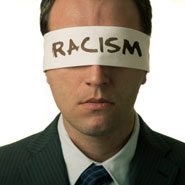Since 2004, nearly 1.9 million East Europeans have come to the UK1. New research, led by academics at the University of Bristol, has examined how current East European migration to the UK has been racialised in immigration policy and tabloid journalism, providing the first insights into how racism is affecting migrants' experiences of work and life in the UK.
In an 18-month project, published in the journal Sociology, led by Dr Jon Fox,Senior Lecturer from the University’s School of Sociology, Politics and International Studies, researchers explored questions of racism surrounding Hungarian and Romanian migration to the UK.
The evidence to date from the UK suggests that shared 'whiteness' offers few protections against racism. Like earlier generations of Irish migrants to the UK and US, East European Jews a century ago, and more recently East European Roma, this new generation of East European migrant workers has been subjected to various forms of racism, racial discrimination, and racial stigmatisation.
This is not the crude racisms of epithets and insults; rather, it is the racialisation of innuendo and inference.
Dr Fox, lead author of the study, said: “Our analyses found that shared whiteness between migrant and majority has not exempted these migrants from the sorts of racialisation found in other migrations.” The study examined immigration policy and the tabloid media for evidence of different forms of racialisation.
“Hungarians [who like Poles were not subject to immigration control] have benefited from an immigration policy that whilst motivated by economic considerations, was underlined by racialised preferences. Romanians, in contrast, were subjected to strict immigration controls, not because they didn’t match the preferred racial profile of migrants, but because concern over their numbers trumped both economic and racialised rationales for letting in more migrants.
“While immigration controls against Romanians were not racially motivated, they did produce racialised effects. Romanians were symbolically stripped of their whiteness by an immigration policy that refused to recognise them as full Europeans with associated rights.”
In the tabloid media, in contrast, it was the Romanians who received the bulk of (negative) attention. This is because Romanians, unlike Hungarians, stepped into an unfolding narrative of stigmatisation that reached back to post-Ceauşescu images of AIDS babies, supposedly fraudulent asylum claims, and a host of unsavoury activities ranging from begging and prostitution to petty theft and smuggling. Associations with the Roma and Gypsy/Travellers in the UK cemented their negative reputation in the tabloid press’ handling of the current migrations.
The study’s findings show how two cohorts of migrants, neighbours in East Europe and phenotypically indistinguishable from one another (and indeed from a white British majority), are dramatically lightened and darkened by immigration policy and the tabloid media.
Dr Fox added: “Our analyses reveal how immigration policy and the tabloid media have contributed to the whitening and darkening of Hungarian and Romanian migrants. Immigration policy whitened Hungarian migrants; the tabloid media darkened Romanian migrants.”
The study, entitled ‘The racialisation of the new European migration to the UK’, was funded by the Economic and Social Research Council (ESRC).
Paper: ‘The racialization of the new European migration to the UK’, published in the journal Sociology: DOI:10.1177/0038038511425558 by Jon E Fox, Laura Moroṣanu and Eszter Szilassy at the University of Bristol.
